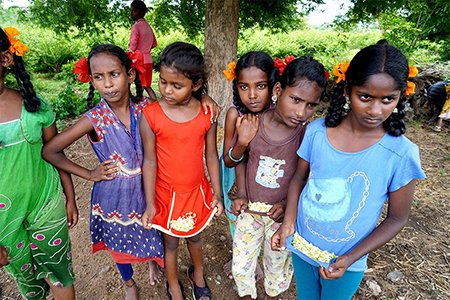World No Pesticide Use Day 2019: Documentary exposes effects of toxic pesticides on children

12 December 2019
1480
PAN Asia Pacific (PANAP)
Press Release
3 December 2019
World No Pesticide Use Day 2019: Documentary exposes effects of toxic pesticides on children
On the 35th anniversary of the Bhopal tragedy, also commemorated as the World No Pesticide Use Day, PAN Asia Pacific (PANAP) released a documentary exposing the continued poisoning of children from toxic pesticides.
“Just as the Bhopal gas tragedy in 1984 killed thousands of people, including children, pesticides used in agriculture poison countless of children across the globe today. Then and now, agrochemical companies also continue to inflict harm on children’s health and well-being without being held accountable,” said Deeppa Ravindran, Protect Our Children from Toxic Pesticides Campaign Coordinator.
In the 20-minute documentary, entitled “Young and Poisoned,” children are found to be engaged in child labor in floriculture farms in Tamil Nadu, plucking flowers in fields newly sprayed with pesticides, and at times even helping in the application of pesticides. Children are also frequently poisoned during the pesticide spraying season in mango orchards in Andhra Pradesh, through fumes that reach nearby schools and homes.
In the Community Pesticide Action Monitoring done by PAN Asia Pacific in those areas, pesticides that are especially toxic to children—such as chlorpyrifos, lambda-cyhalothrin, cypermethrin, paraquat, and monocrotophos—were found. These pesticides are produced by both Indian manufacturers and the Big 4 agrochemical transnational companies, including Dow Chemicals, formerly Union Carbide of the Bhopal tragedy.
According to PANAP, pesticide companies are accountable for violations of the UN Convention Convention on the Rights of the Child, such as the right to life, the right to education, and the right to enjoy the highest standard of health.
“Nowadays, the threat from chemicals do not come so much from big gas leaks but from everyday exposure. Pesticides can be toxic to children even at low doses. Even public health experts believe that pesticides are responsible for the ‘silent pandemic’ of neurodevelopmental problems affecting children around the world today—from learning disabilities, to ADHD and autism. More decisive action needs to be taken to stop the poisoning of our children,” Ravindran said.
Watch the documentary here:
###
Reference:
_________________________________________
PAN Asia Pacific (PANAP)
P.O. Box 1170, 10850 Penang
Malaysia
Tel: +604-6570271 or +604-6560381 | Fax: +604-6583960
